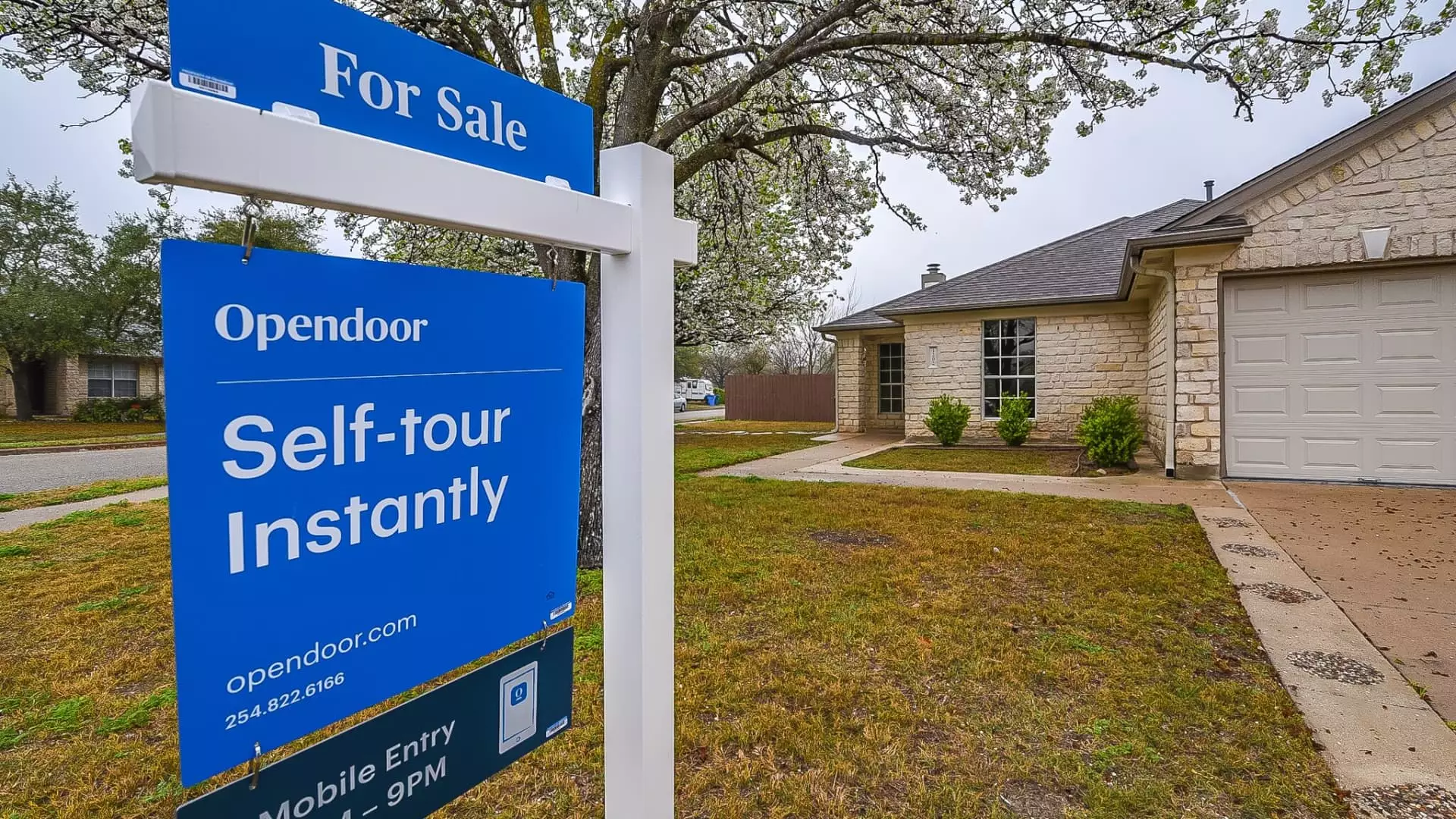In recent weeks, Opendoor’s stock has experienced a meteoric surge that seems almost too good to be true—up nearly five times since July, defying conventional wisdom and the harsh realities of the housing market. This rally, driven by fleeting investor enthusiasm and prominent figures like hedge fund manager Eric Jackson, may appear promising on the surface. Yet, beneath this veneer of optimism lies a fragile foundation built on speculation rather than sustainable growth. The spike is not indicative of a company confidently ascending toward profitability but rather a momentary incandescence fueled by market volatility, hype, and the hope for a turnaround that remains elusive.
Opendoor’s journey has been emblematic of the broader volatility in real estate tech, where enthusiasm often outpaces fundamentals. After a grim decline, its share price bottomed out at 51 cents in June—a stark reminder of how quickly confidence can evaporate when market conditions sour. The revival, ostensibly driven by strategic shifts and hedge fund backing, flirts dangerously with the allure of market bubbles. Investors should exercise caution and scrutinize the sustainability of this rally; it is a testament to how sentiment can be manipulated and distorted in the absence of concrete, stable earnings.
The Myth of a Business Reinvented
At its core, Opendoor has attempted to carve a niche in a highly competitive and uncertain housing market, leveraging technology to buy and sell homes. However, the reality is sobering: revenues plunged by over 66% from their peak in 2022, a direct consequence of rising interest rates that tamped down buyer demand. Despite claims of strategic shifts, like focusing more on a less capital-intensive referral model, these moves are reactive rather than revolutionary. They signal a company desperately seeking stability amidst a market that continues to deteriorate.
The reported second-quarter revenue increase of just 4% and a reduced net loss hardly qualify as evidence of a comeback. In fact, their descending projections—aiming for a sharp revenue fall of at least 36% in the next quarter—highlight the precarious situation they are in. The decline in home acquisitions from over 3,500 to just 1,200 in the third quarter underscores a contracting business desperate to survive rather than thrive. This shrinking footprint and lowered marketing spend reflect a company attempting to do less, but ultimately risking irrelevance if market conditions don’t improve.
The Illusory Power of Market Sentiment
The rally has been significantly influenced by prominent investors and their public bets—highlighted by Eric Jackson’s optimism about reaching an $82 stock price. Yet, his confidence remains speculative at best. The current share price, languishing below $2 after a brief bump above $2, shows an enormous gap between investor perception and reality. Jackson’s thesis—that revenue growth and market share recovery will lead to value realization—ignores the ongoing structural challenges: high mortgage rates, declining buyer interest, and an uncertain economic climate.
This disconnect between market enthusiasm and fundamental value exemplifies how irrational exuberance can distort perceptions of a company’s health. It’s a reminder that stock price bubbles often hinge on narratives rather than tangible results. Investors investing based on hope rather than evidence risk severe losses when the hype inevitably deflates, exposing underlying vulnerabilities.
The Critical Need for Genuine Strategy, Not Hype
While Wheeler’s talk of a “strategic shift” toward referral business might sound promising, it’s perhaps only a bandaid on more profound systemic issues. Relying less on capital-intensive home flipping and more on referral models is a step in the right direction but insufficient if the market for homes continues to shrink. Without addressing fundamental questions—profitability, diversification, and market outlook—Opendoor’s recent gains amount to little more than speculation.
The company’s attempt to revive investor confidence through increased visibility and strategic reorientations reflects a recognition that tangible results are essential. The challenge is that these efforts are being measured against a backdrop of a declining housing market, high borrowing costs, and shifting consumer demand—all factors that can, and likely will, undermine any short-term optimism.
Opendoor’s recent rally is a stark warning of how market sentiment can elevate a fundamentally fragile business on fleeting hopes rather than solid ground. While innovative strategies and bold moves are necessary in a competitive landscape, they cannot substitute for real, sustainable growth rooted in market fundamentals. Until then, the hype remains a dangerous illusion, and cautious skepticism remains the best investor defense.

